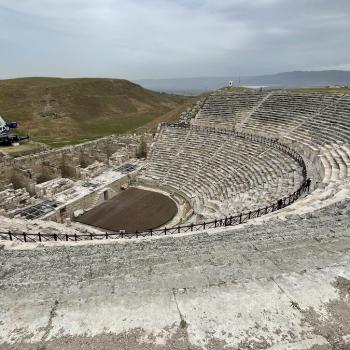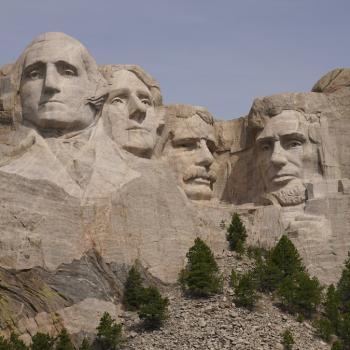
Several years ago, I was invited to address a group of seminary and university students on the subject of Christians and the Nation-State of Israel. What follows over the next couple blogs, is that address. Here is part 1:
I approach this subject from a religious studies perspective. I am interested in how people perceive themselves and how various phenomena affect their identity. That being said, I have not given particular attention to the question of Israel. However, I have spent considerable time on the question of the sacredness of land as it relates to religious practitioners and how one’s identity is formed by the presumed connectedness to land. All of my attention has been focused on Lakota Indians’ land claims of the Black Hills and Contemporary Druids’ land claims to Stonehenge. What I share then is colored by what I have found in studying these two religious people who lay claim to land due to its sacredness.
Restating the Issue
For me, I can only address the Israeli nation-state issue from a biblically informed worldview which asserts, among other things, that Christ’s followers are to exhibit certain virtues concomitant with their faith. This is more than simply the Aristotelian ideas of the four principle virtues: courage, justice, prudence, and temperance. Instead, as Christ’s followers we need to develop what N.T. Wright called the community virtues (Ephesians 4-5): “mutual kindness, truth-telling, forgiveness, acceptance across traditional barriers of race, culture and class.”
If this then is a foundation upon which to address the questions of Christians and the nation state of Israel it seems to me that the response would be focused on recognizing the broken barrier of race, culture and class. In other words, in Christ there is “no Jew or Greek, slave or free, male and female” (Gal 3:28). That being said, when evangelicals support the nation-state of Israel and her people at the expense of Palestinian statehood and her people, it would appear that they potentially erect a racial/ethnic favoritism that Christ Himself destroyed (Eph 2).
Land Ownership
Land is a powerful marker of an individual’s identity. In most traditional societies land is the place where one belongs in contrast to the places where one is a stranger. To many modern societies land is the marker of what belongs to people in relation to what belongs to others. In both social realities land is a way to set boundaries for membership – for inclusion or exclusion in human communities. Land marks out the boundaries of human space and provides a sense of identity for individuals, families, and people groups.
This love of land, or to use the neologism coined by Yi-Fu Tuan, topophilia brings people and groups together with affective bonds to the environment where they live.[i] Such a bond can be simply aesthetic as one might feel a sense of awe by a mountainous landscape. The bond could equally be patriotic and cause one to sing the 1950s Woodie Guthrie song, This Land is Your Land or sing a nation’s anthem. For many, the bond between human and land is spiritual and carries particular religious significance whether it is a connection with ancestors and significant religio-historic events (such as in formal religions) or a connection with spirits of the place (such as in traditional religions).
Sacred Land
Increasingly in Western society, many believe that restoring belief in the sacredness of land will cause people to perceive of the environment as a place that needs care and people should therefore be responsible for its preservation. People in many cultures believe land to be sacred. Some conceive land to be sacred because it is a deity, created by a deity, or given to them by a deity while others conceive it to be simply sacred in some sense.
Land holds particular religious significance for indigenous peoples – e.g., Native Americans and other aboriginals throughout the world who practice traditional native religions. Land also holds particular religious significance for many contemporary Pagans seeking to participate in revivals of traditional native religions as well. So it does not surprise us that the area from the Sinai Peninsula to the Sea of Galilee holds particular significance for approximately half of all religious people.
Next, Part 2: The Jews and Land
_____________________
[i]Yi-Fu Tuan, Topophilia: A Study of Environmental Perception, Attitude, and Values (Englewood: Prentice-Hall, 1974), 93.












